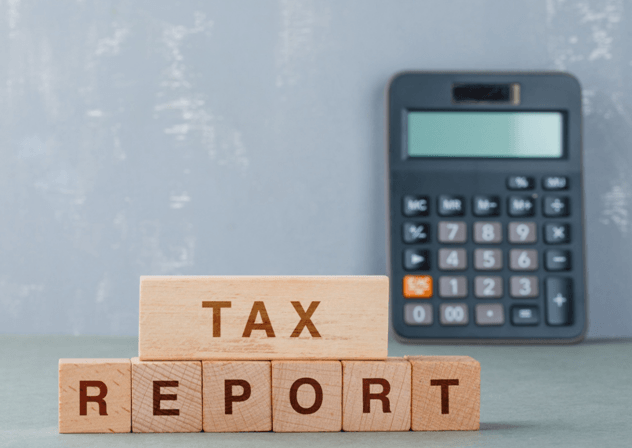When we make an honest effort to pay our taxes, do we ever think of a tax minimization? It’s always second nature for most people to want to pay as little tax as possible. It is also natural to want to give as much back as possible and avoid getting stuck with the larger portions of our owed taxes. However, there are times when a person needs to think about tax minimization. If you have inadvertently overpaid your taxes, or if you have made some unexpected deductions, you may be in a good position for claiming tax relief or some other amount of relief from the IRS. Pillarwm will give you information about tax minimization.
The most common time when someone needs to consider a tax minimization is calculating the amount of income they will receive next year. If you have unexpected deductions you made that were not included on your original return, it can greatly reduce the amount of income you receive next year. For example, many student loan interest payments are considered tax relief. This relief will typically extend to interest and other non-taxable income such as child care and credit card payments.
The legitimation of corporate tax minimization
The legitimation of corporate tax depreciation has been a contention source for many years between the IRS and US corporations. However, recently, the IRS has issued a statement of Principles regarding corporate activity related to its current investigations. The IRS is not cracking down on these aggressive practices but is attempting to more closely regulate tax planning and corporate behavior. This is why this controversy exists because the IRS would like to have a better way of policing aggressive tax planning and increasing corporate responsibility by finding aggressive strategies to minimize their taxes.
The IRS is generally not concerned with any specific strategy a corporation may use to minimize their taxes. The IRS will not focus on strategies like company buyouts, investment in foreign entities, or small businesses’ purchases from bankruptcy. These strategies are generally considered unprofessional conduct by the IRS. The IRS would rather focus its energy on more generic forms of business management and corporate structuring, which are more professional and do not present the same ethical concerns associated with strategies like the one the IRS has stated it will not tolerate.
So how does the IRS define corporate tax avoidance? A company engaged in aggressive tax planning strategies may minimize its taxes through transactions and activities not related to its normal operations. For instance, a corporation may engage in significant stock price fluctuations to take advantage of a short term profit opportunity. This would not normally be considered tax avoidance by the IRS, but instead represents a very risky and potentially dangerous business investment. This example illustrates how the IRS seeks to apply a standard of care to all tax planning strategies, regardless of their nature or intent.
Corporate Tax Minimization and the Effectiveness of Investment Incentives
There are many common mistakes made by small business owners concerning corporate tax depreciation and the effectiveness of such incentives. The main reason is that most small business owners are unfamiliar with the complex measures and terms used in the US corporate tax code, especially since the IRS has made it a formal requirement for corporations to file their tax returns with the government annually. The complexity and lengthy procedures often discourage many small business owners from utilizing effective strategies to minimize their tax liability and fully reap the benefits of the IRS’s tax incentives. One such strategy used by small business owners in structuring their businesses in a way that makes them exempt from paying corporate taxes. By structuring their companies in such a way, they hope to claim a tax deduction of up to 100% on their business income taxes.
However, many corporate tax liability prevention and reduction strategies are considered illegal by the IRS. Some forms of this tax liability avoidance include the use of shell corporations, partnerships, and LLCs. While it may seem that using one of these strategies can save a business money, the amount saved can quickly become a large expense, especially if the business takes a long time to grow and produce sufficient income to justify the avoidance of future Federal income tax liabilities. Moreover, suppose the IRS discovers that a company is utilizing one of these strategies. In that case, it may be able to impose heavy fines and initiate court proceedings against the corporation.
Strategic Cost Shifting and State Tax Minimization
Strategic Cost Shifting is a technique that can be used in the minimization of state tax liability. To qualify for this, you need to have a clear view of your liabilities, as well as the tax amount that would be received if you pay them. Strategic cost management is one of the best techniques to ensure that effective and efficient tax laws and services are made. A firm that provides the state tax credit minimization service should help their clients make the right choices regarding state tax law so that they can minimize the tax liabilities that they are liable to pay.
The company would first identify the tax liability amount that has to be paid. This would help them in calculating the tax payments that need to be made on the income. After this, they would transfer the total tax amounts to an appropriate account receivable. This would be followed by the payment of this amount to the taxpaying agency. The company would continue to use these accounts receivable till it is paid off. Once the payment is made, the tax would cease to be a liability for the company.
Strategic cost-shifting can also be used to minimize state tax payments. The company would have to sell the assets of the client to pay the state tax amount. In case the company has sold its assets, and yet the tax payable on them is not paid, then a refund can be claimed under the law. So, by using this technique, you would save money on the taxes you would have to pay.

Krishna Murthy is the senior publisher at Trickyfinance. Krishna Murthy was one of the brilliant students during his college days. He completed his education in MBA (Master of Business Administration), and he is currently managing the all workload for sharing the best banking information over the internet. The main purpose of starting Tricky Finance is to provide all the precious information related to businesses and the banks to his readers.




